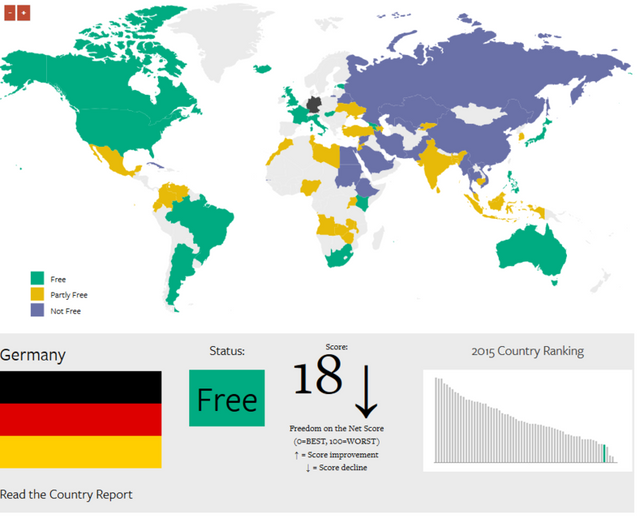German Police Raiding People Suspected of "Hate Speech"

German police have started to raid people who are suspected of posting hateful content on social media. Many of the raids have been in response to posts about the growing number of refugees allowed into Germany. In the last year alone, Germany took on 1 million additional migrants. Other types of discussions which are now considered criminal include: "glorification of Nazism [and] xenophobic, anti-Semitic and other right-wing extremism". According to German law, any person can be jailed for up to 5 years for encouraging "hatred against a national, racial, religious group or a group defined by their ethnic origins".
Holger Munch, president of Germany's federal criminal police authority, the Bundeskriminalamt (BKA) said: "Today's action makes it clear that police authorities of the federal and state governments act firmly against hate and incitement on the internet." Mr. Munch added that social networks can foster the beginnings of plots to attack refugee shelters through gradual radicalization.
Facebook has agreed to take certain measures to suppress hate speech such as:
- Partnering with a German group of multimedia service providers to solve the problem
- Launching a task force to deal with hate speech on the internet
- A campaign to promote "counter speech" in German, drawing in experts to develop ways to combat racism through discussions on social media.
Critics of the actions taken by Germany and social networks argue that censoring hateful content can be harmful to society. In Germany, section 130 in article 5 of the criminal law code makes it illegal to incite hatred through speech or actions. The first amendment to the Constitution of the United States, on the other hand, gives no exceptions to what type of speech is allowed.

Freedomhouse.org, a site dedicated to promoting an open internet without censorship, reports that Germany has a slightly better rating than the United States (19/100 vs. 18/100, where lower is better) in its most recent report from 2015. Both countries' scores are down from last year following reports of increased censorship of information deemed to be of public interest by governments around the world.
Sources:
http://www.bbc.com/news/technology-36804363
http://germanlawarchive.iuscomp.org/?p=752#130
http://www.firstamendmentcenter.org/about-the-first-amendment
https://freedomhouse.org/report/freedom-world/freedom-world-2016